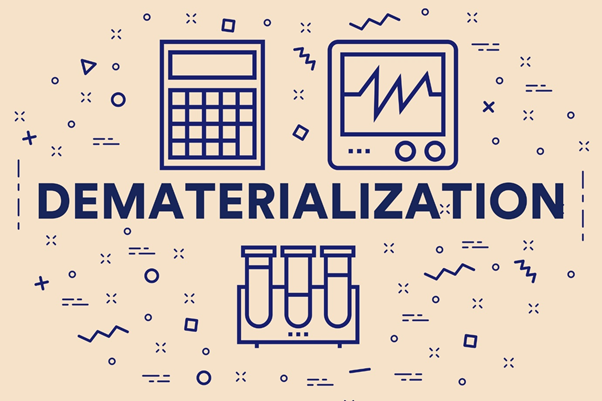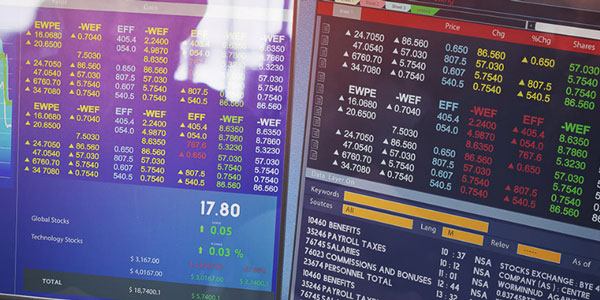Transferring records from paper certificates to digital files on a computer is referred to as dematerialization, shortened as DEMAT. After this, the physical stock certificates are removed from circulation and replaced with digital data. Because DEMAT accounts are the most accurate way to keep track of things, some places to trade require them. The objective of the dematerialization movement was to expedite financial transactions while simultaneously improving their level of security. When keeping their books, most financial institutions do this. All of your securities are kept electronically instead of in the paper form. Let's go into more detail about dematerialization.
How Dematerialization Works

Since computers and the Depository Trust Company came along, securities no longer need to be in the form of certificates. You can register them and send them through the Internet. Accounts could be changed quickly and automatically with the help of dematerialization. In the past, traders at stock exchanges used to shout out the prices of the things they wanted to buy or sell. The deals were written down on paper receipts. After the markets closed, the paperwork kept going so all the trades could be properly recorded.
A Short History of Dematerialization
After the Indian economy was opened in 1991, the SEBI (Securities and Exchange Board of India) was created in 1992 to control the capital markets. In turn, the SEBI helped pass the Depositories Act of 1996, which allowed securities to be kept electronically instead of on paper. Also, the Companies (Amendment) Act of 2000 said that IPOs worth more than Rs. 10 crores could only be sold online. Right now, you can't buy or sell stock without a Demat account.
Advantages of Dematerialization
Stock shares can be bought or sold electronically through DEMAT accounts. This is possible because things aren't there. A DEMAT account holds the certificates for the user's stocks and other securities so that trades can be made easily.
Easy and useful
You can do business online if you have a Demat account. To settle a deal, you don't have to go to the broker's place. The investor can also access their Demat account using a computer or a smartphone. You can also turn your physical shares into electronic shares so that you can legally own them.
Safe and Sound
The best and safest way to do business online is through a Demat account. All the risks of having shares in the form of physical certificates, like damage, theft, and loss, are gone.
Nomination Service
You can let someone else use your Demat account when you aren't able to. We call this a "nominee." With this service, you can ask someone else to handle your Demat account transactions when you can't do it yourself.
Paperless

The fact that you don't have to use paper is one of the best things about a Demat account. Since a Demat account is used to store shares or securities in digital form, there is almost no need for paper. Companies have also found the Demat account very helpful because it has saved them money and time on administrative costs and hassles.
Use the Loan Facility
With a Demat account, you can use your holdings that aren't in physical form as collateral to get a loan. Shares and securities in a Demat account can be used as collateral to get a loan.
Easily identifiable
With a Demat account, you can check on your portfolio from home, the office, or anywhere else. Because more people are interested and involved, you are more likely to make more money if you have the freedom to track how your portfolio is doing.
Multiple Reasons
In a Demat account, you can hold both stocks or equities and bonds. You can also buy, hold, and sell mutual fund units through the Demat account. You can buy government bonds, exchange-traded funds, etc., with a Demat account.
Why Do We Need Dematerialization?
Sometimes it's hard to keep track of paper documents. Also, since there are more and more papers, it might be easy to miss an important one. It could bring down the Indian Stock Market and any businesses that depend on it. Not only that but when a share is transferred, 0.5% of the stamp duty is saved. If the original certificates are lost, getting replacements takes less time and costs less. Credits and bonuses for dematerialized shares are added to the account, so they can't get lost in transit. The interest rates on loans tied to Demat accounts are also lower.




